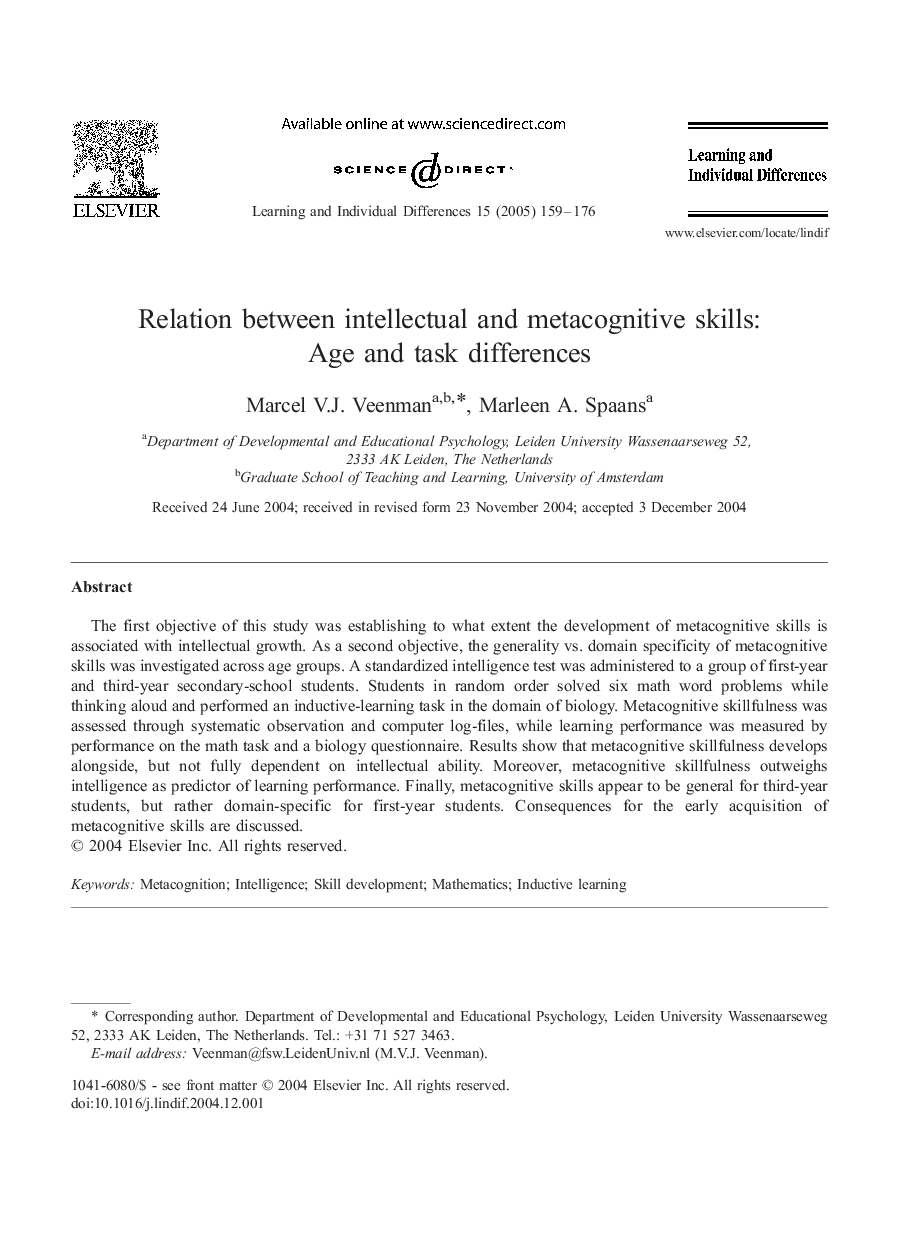| Article ID | Journal | Published Year | Pages | File Type |
|---|---|---|---|---|
| 10315565 | Learning and Individual Differences | 2005 | 18 Pages |
Abstract
The first objective of this study was establishing to what extent the development of metacognitive skills is associated with intellectual growth. As a second objective, the generality vs. domain specificity of metacognitive skills was investigated across age groups. A standardized intelligence test was administered to a group of first-year and third-year secondary-school students. Students in random order solved six math word problems while thinking aloud and performed an inductive-learning task in the domain of biology. Metacognitive skillfulness was assessed through systematic observation and computer log-files, while learning performance was measured by performance on the math task and a biology questionnaire. Results show that metacognitive skillfulness develops alongside, but not fully dependent on intellectual ability. Moreover, metacognitive skillfulness outweighs intelligence as predictor of learning performance. Finally, metacognitive skills appear to be general for third-year students, but rather domain-specific for first-year students. Consequences for the early acquisition of metacognitive skills are discussed.
Related Topics
Social Sciences and Humanities
Psychology
Developmental and Educational Psychology
Authors
Marcel V.J. Veenman, Marleen A. Spaans,
